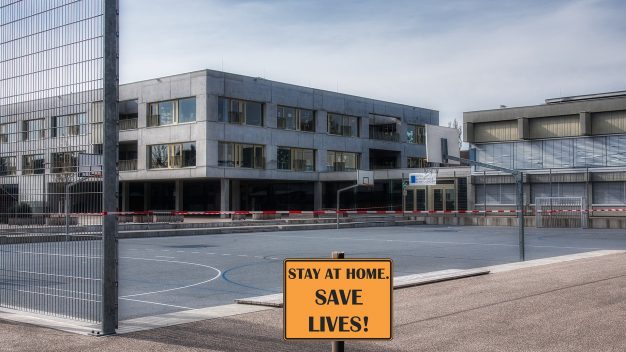
First day of school ‘indefinitely postponed’ for millions of children
With the summer break coming to a close, many children – and their parents – will be looking forward to their first day of school. But the continued effects of the COVID-19 pandemic mean that for over 100 million youngsters, this landmark event will be ‘indefinitely postponed’.
Children’s charity UNICEF also estimates that for around eight million of those students living in cities and other areas where schools have been closed, the wait to experience that ‘first day feeling’ will be a year – and counting.
“The first day of school is a landmark moment in a child’s life – setting them off on a life-changing path of personal learning and growth. Most of us can remember countless minor details – what clothes we wore, our teacher’s name, who we sat next to, but for millions of children, that important day has been indefinitely postponed,” said UNICEF Executive Director Henrietta Fore.
“As classes resume in many parts of the world, millions of first graders have been waiting to see the inside of a classroom for over a year. Millions more may not see one at all this school term. For the most vulnerable, their risk of never stepping into a classroom in their lifetime is skyrocketing.”
‘Children face an unprecedented second year of disruption’
The first ‘grade’ – basically the first year of primary education – sets up the building blocks for all future learning, with introductions to reading, writing, and math. It’s also a period when in-person learning helps children gain independence, adapt to new routines, and develop meaningful relationships with teachers and students. In-person learning also enables teachers to identify and address learning delays, mental health issues, and abuse that could negatively affect children’s well-being.
In 2020, schools globally were fully closed for an average of 79 teaching days. However, for 168 million students, after the pandemic began, schools were shuttered for nearly the entire year. Even now, many children are facing an unprecedented second year of disruption to their education. The associated consequences of school closures – learning loss, mental distress, missed vaccinations, and heightened risk of drop out, child labour, and child marriage – will be felt by many children, especially the youngest learners in critical development stages.
While countries worldwide are taking some actions to provide remote learning, at least 29 per cent of primary students are not being reached. In addition to lack of assets for remote learning, the youngest children may not be able to participate due to a lack of support using the technology, a poor learning environment, pressure to do household chores, or being forced to work.
‘Children who fall behind often stay behind’
UNICEF says that studies have shown that positive school experiences during this transition period are a predictor of children’s future social, emotional and educational outcomes. At the same time, children who fall behind in learning during the early years often stay behind for the remaining time they spend in school, and the gap widens over the years. The number of years of education a child receives also directly affects their future earnings.
Unless mitigation measures are implemented, the World Bank estimates a loss of $10 trillion in earnings over time for this entire generation of students. Existing evidence shows the cost of addressing learning gaps are lower and more effective when they are tackled earlier, and that investments in education support economic recovery, growth and prosperity.
UNICEF is urging governments to reopen schools for in-person learning as soon as possible, and to provide a comprehensive recovery response for students. Together with the World Bank and UNESCO, UNICEF is calling for governments to focus on three key priorities for recovery in schools:
- Targeted programmes to bring all children and youth back in school where they can access tailored services to meet their learning, health, psychosocial well-being, and other needs;
- Effective remedial learning to help students catch up on lost learning;
- Support for teachers to address learning losses and incorporate digital technology into their teaching.
“Your first day of school is a day of hope and possibility – a day for getting off to a good start. But not all children are getting off to a good start. Some children are not even starting at all,” said Fore.” We must reopen schools for in-person learning as soon as possible, and we must immediately address the gaps in learning this pandemic has already created. Unless we do, some children may never catch up.”




